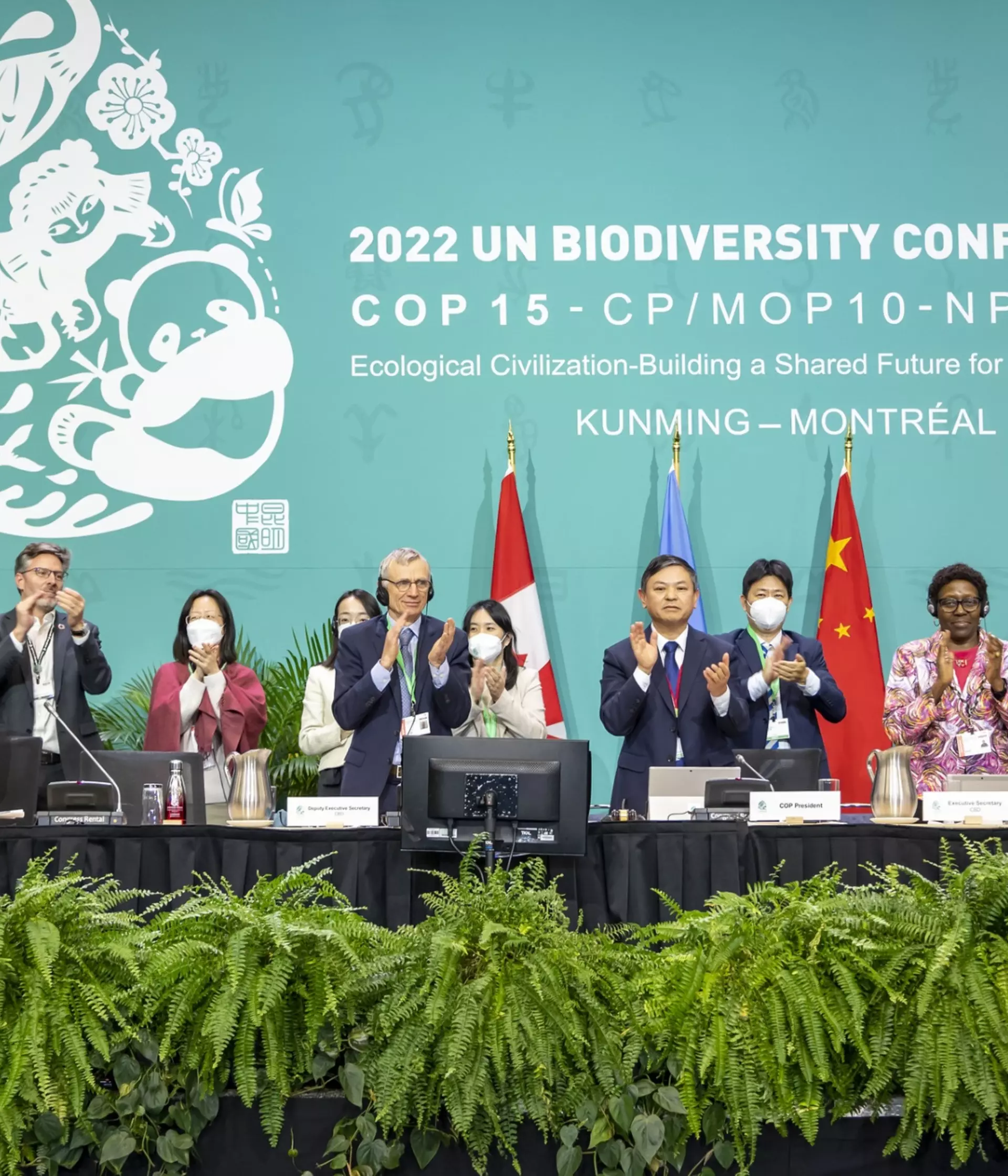Learn all about ZSL's COP season 2022 in a series of news items and blogs from our experts.
COP 27, followed by COP 19 in Panama in November 2022 and COP15 in Montreal in December 2022, put a much-needed spotlight on the decline in global biodiversity.
But without coordinated nature-based policies in place across the world, animals will continue to go extinct, ecosystems will continue to break down and climate change will continue to change life on earth as we know it.
It is vital that governments commit to using nature-based solutions - rooted in science from ZSL and organisations like it - to tackle the combined threats of climate change, biodiversity loss and public health crises.
ZSL has been calling for world leaders to put nature at the heart of all global decision-making to better protect habitats, wildlife and the communities who rely on them.
Read more about the 2022 COP season:
Spotlight on Nature – COP season begins
ZSL is to play a crucial role in a side event at UNFCC - COP27 in Egypt: Wednesday 16 November
COP27 – One week in
ZSL’s Senior Policy Specialist Bethan Laughlin is representing ZSL at the COP27 negotiations in Sharm el Sheik.
Spotlight on Nature – CITES COP19 begins
ZSL experts explain why the Convention on International Trade in Endangered Species of Fauna and Flora matters for threatened species across the globe.
COP27 – A COP of two halves
ZSL’s Senior Policy Specialist Bethan Laughlin reflects on the outcomes of the United Nations Convention on Climate Change’s COP27 and what it means for nature.
The Convention on Biological Diversity (CBD) – COP15
Read ZSL's position paper on what we would like to see achieved at the Convention on Biological Diversity (CBD).
Spotlight on Nature - COP15 Biodiversity Summit Begins
ZSL is calling for world leaders to make ambitious, evidence-led commitments to tackle world-wide biodiversity loss
COP15 – Progress so far
We reflect on the progress – or lack of – made so far at COP15
Spotlight on Nature: COP15 - The Global Biodiversity Framework
Director of Conservation and Policy, Andrew Terry, reflects on COP15 and what it means for nature
